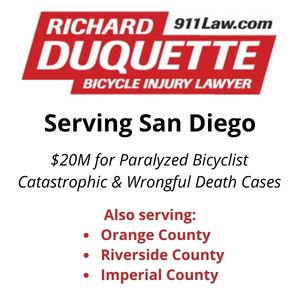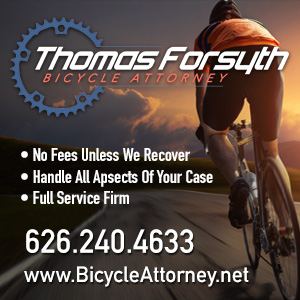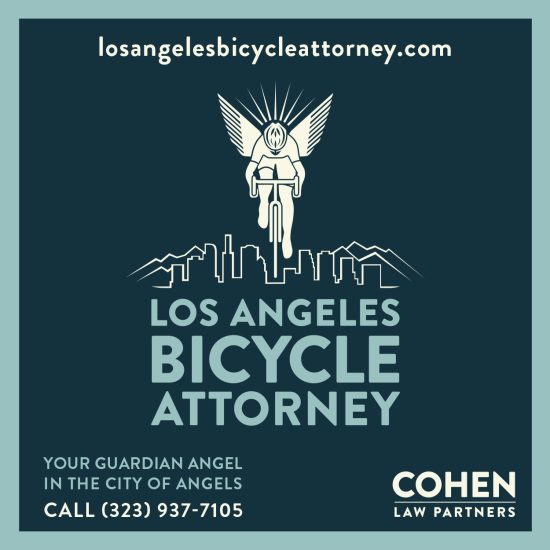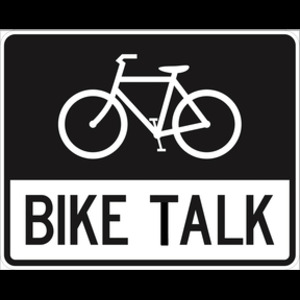
I’ve known John Lloyd almost as long as I’ve been involved in bicycle advocacy, and admired his insights and opinions since the days of his old Boyonabike blog,
A respected professor of history at Cal Poly Pomona, John also serves as co-chair of the campus Alternative Transportation Committee, and has long been a leading voice for sustainable transportation and safe streets for all ages and abilities.
As an experienced ebike rider, John’s comments on Tasha Boerner’s new ebike licensing ban caught my attention, and I asked if he’d share them here with you.
We’ll be back tomorrow with our usual Morning Links to catch you up on all the latest bike news.
………
This month Assemblymember Tasha Boerner introduced AB 2234, a bill that would require licensing of e-bike riders and prohibit children under the age of 12 from riding e-bikes. The bill would create “an e-bike license program” that would require all e-bike riders to take an online test and have a state-issued photo ID confirming passage of the test. The bill is short on specifics, but establishes a “stakeholders’ working group” to “work on recommendations to establish an e-bike training program and license.” If the working group were to establish such a recommendation, it is not clear whether it would then go back to the legislature for ratification or whether it would be immediately implemented by the DMV. The bill does seem to make a nod toward an e-bike education program to be administered by “local agencies and school districts,” but even that is not clear. There are good bike education programs in existence that can and should be scaled up, but of course, funding would be key to the success of any education program. The bill explicitly does not provide funding for any such program.
What concerns me is the focus on creating new categories of illegality for people riding bikes while doing nothing about our dangerous infrastructure. This law would make it a crime for a person over the age of 12 to ride an e-bike without a license and this approach raises a number of important questions the legislature needs to ask before the bill is brought to a vote. Legislators ought to ask themselves if they’re willing to fund an education program at the level required to make it meaningful and widely available to people of all income levels.
There is also a question of driver education. Many of us who ride will tell you that there is a significant portion of the licensed driver population that show no evidence of awareness of state laws regarding how to drive safely and especially how to drive safely around pedestrians and people on bikes. Any such education program must address driver education as well.
Criminalizing unlicensed e-bike riding is bound to have unintended consequences for many communities who already face disproportionate police scrutiny. It is not difficult to imagine that law enforcement agencies in some cities would use the e-bike law as a pretext to stop and harass low income people, youth, and people of color. In my experience, a surprising number of law enforcement officers misinterpret traffic laws as they apply to bicycles, especially when it comes to subjective interpretation of things like lane positioning, sidewalk riding, use of crosswalks, or even what constitutes an e-bike. Some “e-bikes,” especially those popular with many younger riders, look more like motorbikes, and some look like regular bikes. How are police supposed to know which is which? This bill is a blank check to police to stop any person on a bike on the flimsiest of pretexts. Cyclists of color will tell you how often this already happens. This bill will provide even more pretexts. Encounters with law enforcement over minor violations often do little to improve safety, to say nothing of making it harder to simply ride an e-bike without fear of police harassment if you’re young and Black or Latinx.
Bike licensing is a red-herring and a distraction from the far bigger problem of traffic violence caused by drivers–the vast majority of whom are licensed by the state. What problem is licensing designed to solve? The state’s investment in safe bike infrastructure has been anemic for years and fixing unsafe road conditions would do far more for e-bike safety than an online test. Indeed, Assemblymember Boerner’s bill follows close on the heels of the Governor’s proposed $200 million cut to the state’s already inadequate Active Transportation Plan (ATP). If the issue really is the safety of e-bike riders, providing more funding for safe infrastructure is the most important thing our political leaders can do.
For years Californians who ride bikes have pleaded with state leaders for the resources to make safer streets a reality. We’ve got plenty of examples of bike plans that go unfulfilled, Vision Zero and complete streets declarations that are forgotten soon after they’re passed. I’ve got decades of experience as a rider, I know the laws and ride safely because I want to get home safely to my family. I’d like nothing better than a state with a serious commitment to the safety of all road users, because all too often the roads aren’t safe for those of us on bikes and e-bikes, even when we follow all the rules. Many longtime bike safety advocates like myself have had the experience of asking our city for a bike lane to make riding safer, only to be answered by a nonsequitur, “what about cyclists who don’t obey the law?” That’s what Assemblymember Boerner’s bill feels like. We ask for infrastructure to keep us safe from cars and get e-bike criminalization from car-brained politicians instead.
If legislators want to get serious about safety, I ask that they start by getting serious about increased funding for the state’s Active Transportation Program. Next, provide funding for universal bike safety education programs for youth and adults through schools districts, municipal parks and recreation centers, and local community groups. Third, upgrade driver education so that people are aware of the fact that bicyclists have a right to the road and how and when to pass safely.
Licenses and criminalization won’t make anyone safer, but they will discourage e-bike riding and result in one more excuse to harass marginalized people on e-bikes, and that shouldn’t be the consequence of misguided, if well-meaning “safety” legislation.






Thank You John Lloyd. As someone who has been riding bicycles for over forty years and who regularly uses an electric bicycle to commute to work and back, this bill proposed by Ms. Boerner clearly shows how out of touch many in the political arena really are when it comes to safe streets for all. As you have stated, “Bike licensing is a red-herring and a distraction from the far bigger problem of traffic violence caused by drivers–the vast majority of whom are licensed by the state.”
As an example of how pathetic the concern for safety is in California, I have complained to a district about a section of street maybe half a block long which I travel through. It has absolutely no provisions for bicycle infrastructure and safety. And as is typical of politics, no action has been taken in over 5 years since my initial and subsequent complaints. I have made my opinion about the level of bicycle infrastructure in Los Angeles County quite clear to representatives of the organization “People For Bikes”. It is non-existent. I would like to see California take the lead in communities designed for people, not cars. At this point it feels like wishful thinking.
Thank You John Lloyd for weighing in on this proposed legislation.
As insurance companies raise rates & leave CA, more people will turn to less expensive e bikes for transportation. I see more seniors as well as youth riding them. The e bike industry is big and contributes to jobs & our economy. Of course safety is important, and Improved infrastructure is critical, I favor funding education at all levels is the keystone. Schools, DMV, and publicly awareness of e bikes over more regulation that stunts growth of this class of bicyclists.
I do think the manufactures can contribute by making bright lighting automatic on e bikes when turned on. Visibility is a shared responsibility.
*Friendly reminder, class one e bikes by statute are clearly not motor vehicles by definition. This matter when insurance coverage becomes an issue w an e bike crash.
Ted, thanks for keeping this subject & discussion alive in your newsletter.
You’re welcome, Richard. And thank you for keeping up the fight, and helping me do it, too.
Ted,thanks to you. & your guest Mr Lloyd,for Keeping this subject of new e bike legislation going. As Insurance companies continue to raise rates & leave CA,more people will turn to the less expensive option of riding e bikes.I see this now w seniors and kids.Education/Infrastructure & funding at all levels is the key,from schools,the DMV & pubic awareness campaigns.I think the manufactures could add by making bright lighting when automatically turned on. Safety (visibility) is a shared responsibility.I don’t want to the e bike industry economically impacted by restrictions, it creates climate friendly jobs.
*Friendly remind,Class one e bikes are not Motor vehicles as defined by statute. This becomes relevant when a cash occurs and dealing with the insurance claims adjusters.